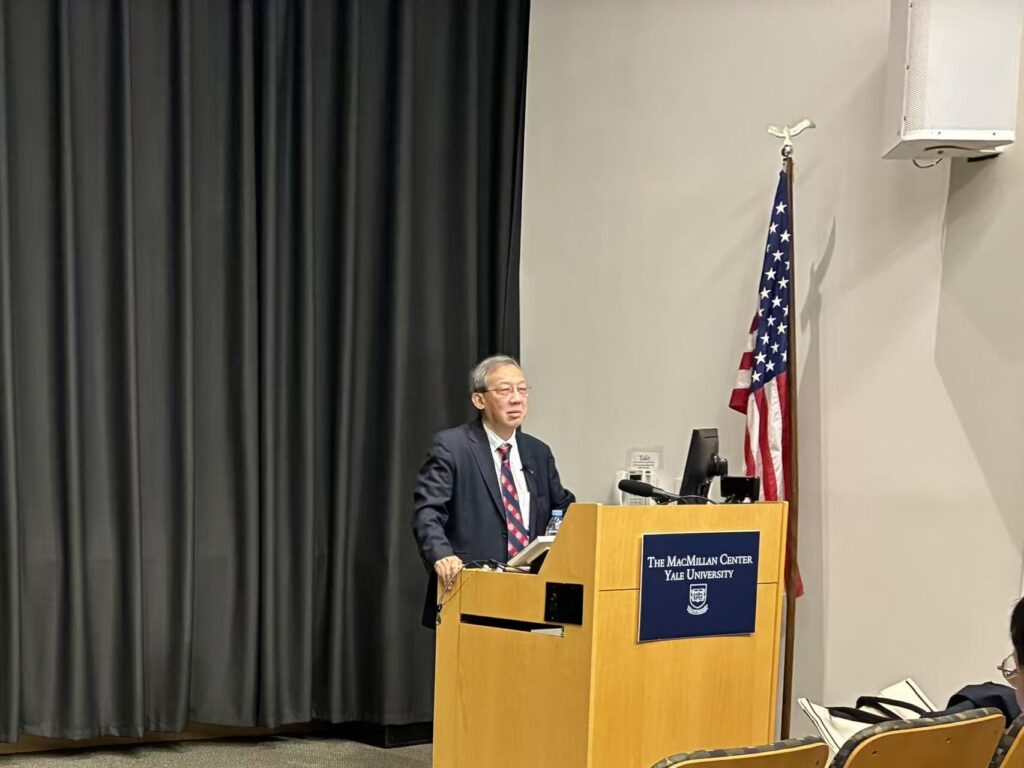The Council on East Asian Studies at Yale University’s MacMillan Center for International and Area Studies hosted a significant lecture on March 15, 2024, focusing on one of China’s pivotal historical figures, Zhou Enlai. The lecture, titled “Zhou Enlai and China’s ‘Age of Revolutions,’” was presented by Chen Jian, a history professor at New York University and NYU-Shanghai. Chen’s extensive biography of Zhou, published by Harvard University Press, has garnered attention for its nuanced portrayal of a leader who played a crucial role in shaping modern China.
Zhou Enlai served as the first Premier and Foreign Minister of the People’s Republic of China. He was instrumental in the country’s early domestic and foreign policies, notably during the tumultuous periods of the Cultural Revolution and the establishment of diplomatic relations with the United States in the 1970s. Kathy Rupp, director of the Council on East Asian Studies, emphasized the relevance of the Hume Lectures, which aim to connect Yale students and faculty with prominent scholars in East Asian studies. She noted that the focus has recently shifted specifically to China, reflecting its importance in the contemporary world.
Chen was introduced by Arne Westad, a history professor at Yale, who praised Chen’s influential scholarship on modern Chinese and international history. Westad remarked, “There are very few people who had the kind of impact that he has had on the writing of Chinese history and international history in his generation.”
In his lecture, Chen elaborated on the choice of the plural term “revolutions” to describe 20th-century China, highlighting a series of upheavals from the 1911 revolution to the Cultural Revolution. He stated, “The subject of my talk today, Zhou Enlai, was involved in almost every phase of this age.”
Central to Chen’s discussion was Zhou’s complex relationship with Mao Zedong, the founder of the People’s Republic of China. Contrary to interpretations that label Zhou as merely an accomplice to Mao, Chen presented a more multifaceted view of Zhou’s political stance. “Certainly he was not a Maoist, certainly not an internalized Maoist,” Chen asserted, arguing that Zhou aimed to promote a vision of democracy within the Chinese Communist Party (CCP) during a time when Mao wielded absolute power.
Drawing from his extensive archival research, Chen traced Zhou’s critical role in formulating the CCP’s strategies that led to its victory over the Nationalist Party during the Civil War. He posited that Zhou “hoped” to maintain democratic ideals after the CCP ascended to power, attempting to moderate the party’s direction. This ambition, however, was consistently thwarted by Mao, who maintained tight control over the party’s decisions. “He tried very, very hard to serve as a good premier,” Chen remarked, noting that this commitment also positioned Zhou as an enabler of Mao’s policies.
Chen also addressed Zhou’s legacy in shaping China’s foreign policy. He recounted a significant conversation he had with Henry Kissinger during a two-hour exchange at Yale, recalling Kissinger’s 1973 meeting with Zhou. During this meeting, Kissinger offered support to China in the event of a Soviet missile attack, a proposal to which Zhou did not provide a clear response.
To conclude his lecture, Chen reflected on the complexity of Zhou’s legacy, sharing a personal anecdote from his research process. He recounted that many, including his late father, would often ask him, “Is Zhou a good guy or a bad guy? Yes or no?” Chen expressed the difficulty of providing a definitive answer, emphasizing the nuanced nature of historical figures.
Audience members expressed appreciation for the lecture. Jamin Nuland, a student, described Chen as “a great storyteller,” highlighting the engaging manner in which he presented Zhou Enlai’s multifaceted role in history. Another attendee, Aiken Wang, noted the lecture offered a rare opportunity to delve into Chinese history and Zhou’s contributions, especially given the limited coursework available on these topics at Yale.
The MacMillan Center is located at 34 Hillhouse Avenue, serving as a hub for international studies and fostering discussions on critical global issues.





































































